Lorca is the artist who has influenced me the most. I don’t travel without his poetry, and I know his story by heart. We grew up with the same cultural backdrop, we have similar backgrounds and similar sensibilities in our writing. We share our love for gossip, born out of the communal culture that raised us both. His work is home when I am away, and I can always find in his words the right thing to say. It is such a big part of my identity that the first thing Ana thought when I was depressed was “She needs some Lorca”, and I indeed needed some Lorca.
Portrait of Lorca. Unknown
This project is therefore collaborative. The original idea was my friend Ana, who also shot the photos and wrote the text. Together, we chose the location for each image and tried different angles. The text is entirely Federico García Lorca’s. As for me, I chose the poems, the placement of the text and the poses. Each photograph was an individual story that connects me, the poem and my development living abroad.
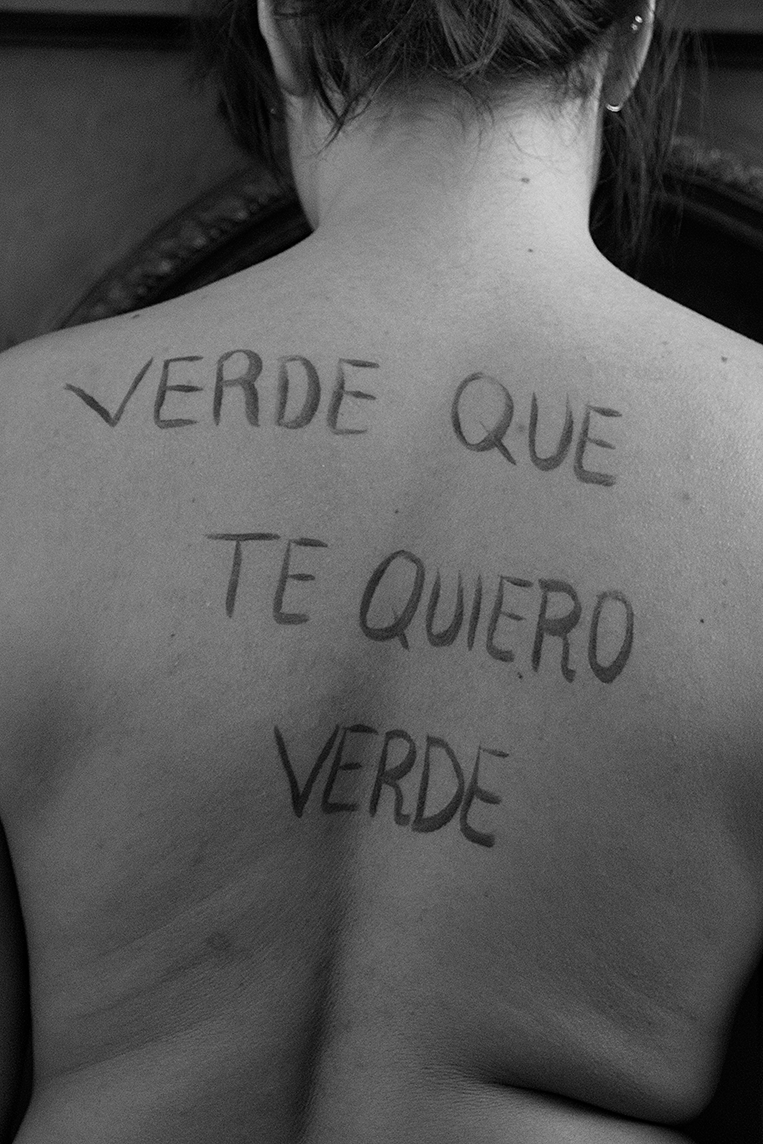
VERDE
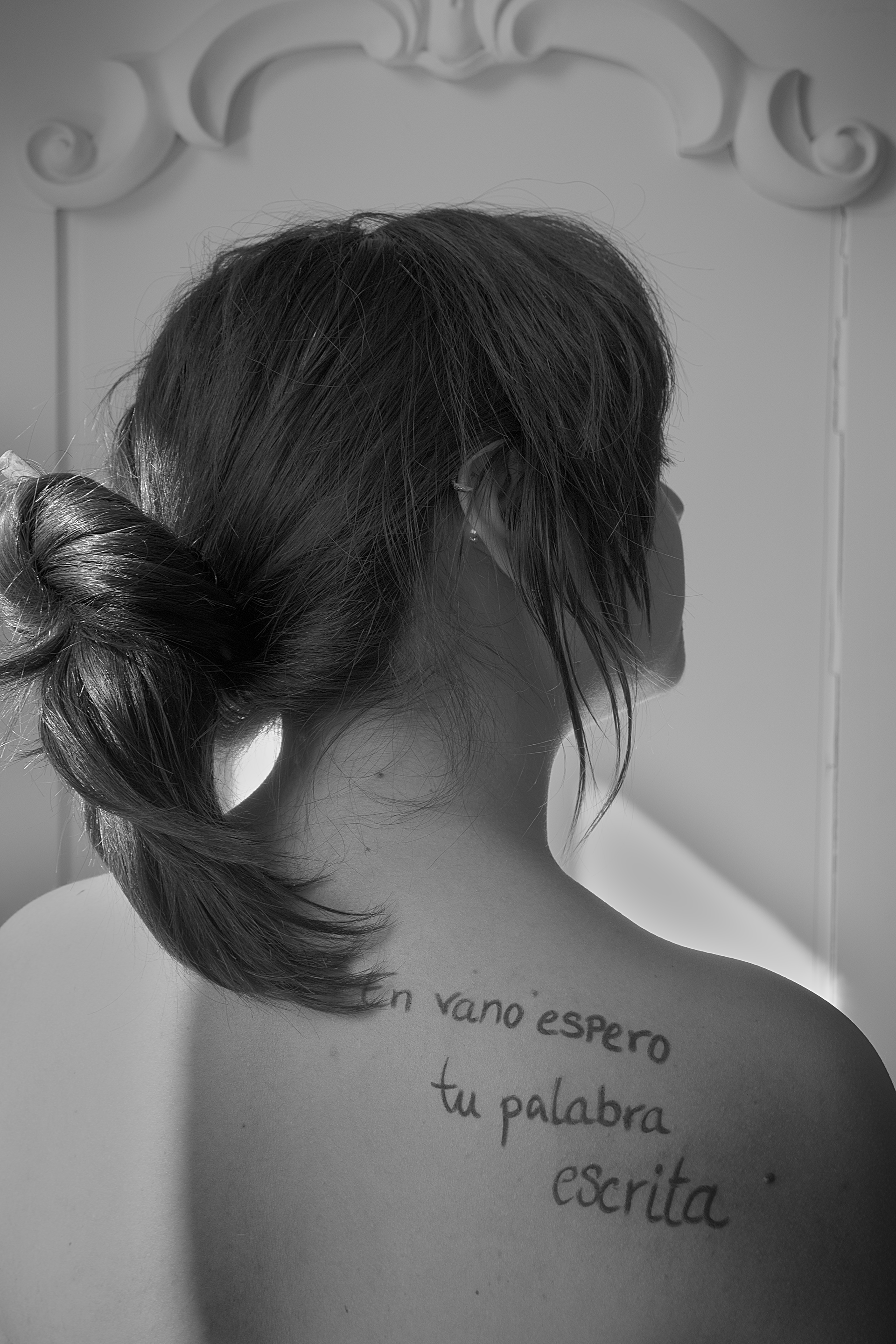
In vain I wait for your written word
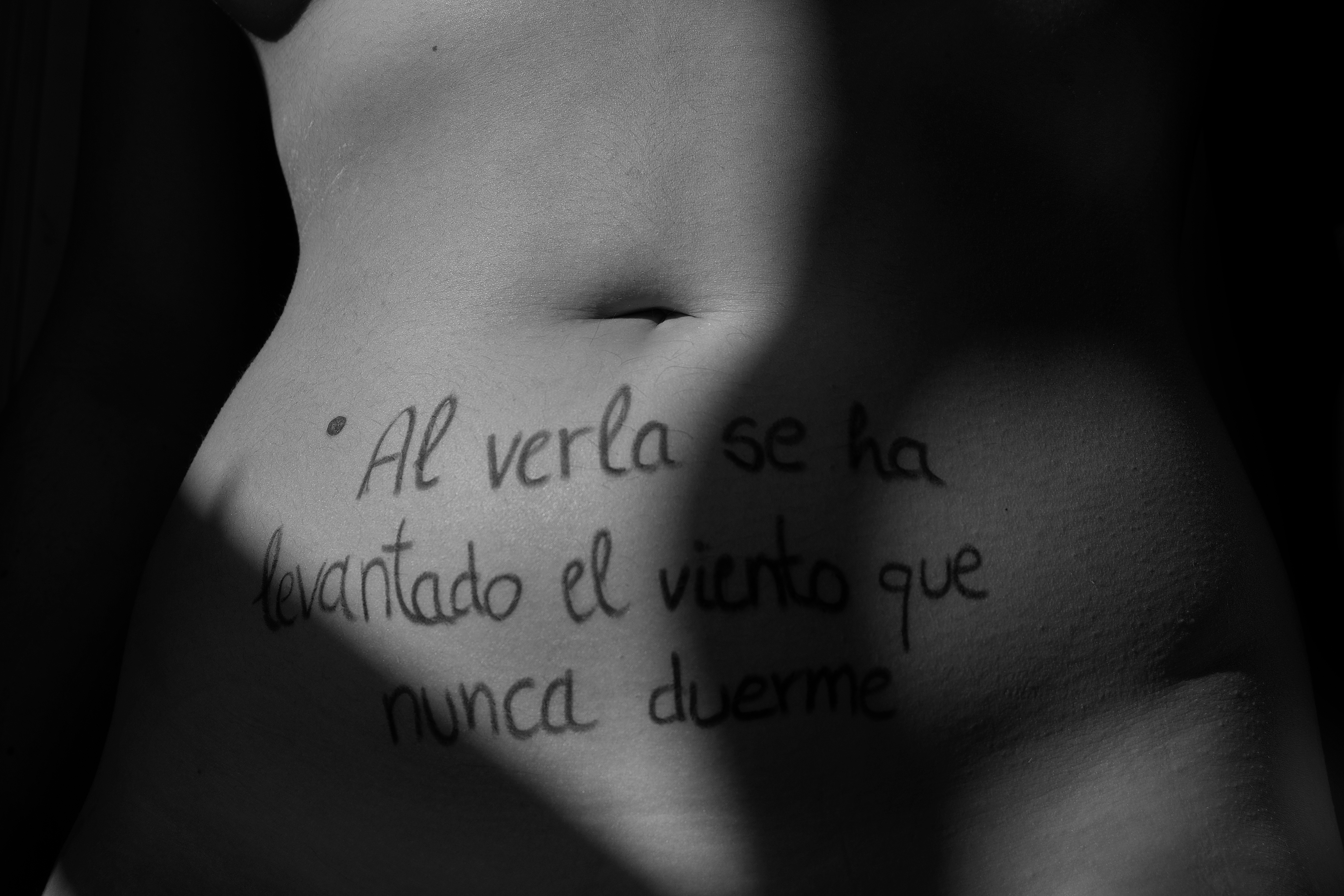
Upon seeing her has risen The Wind that never sleeps
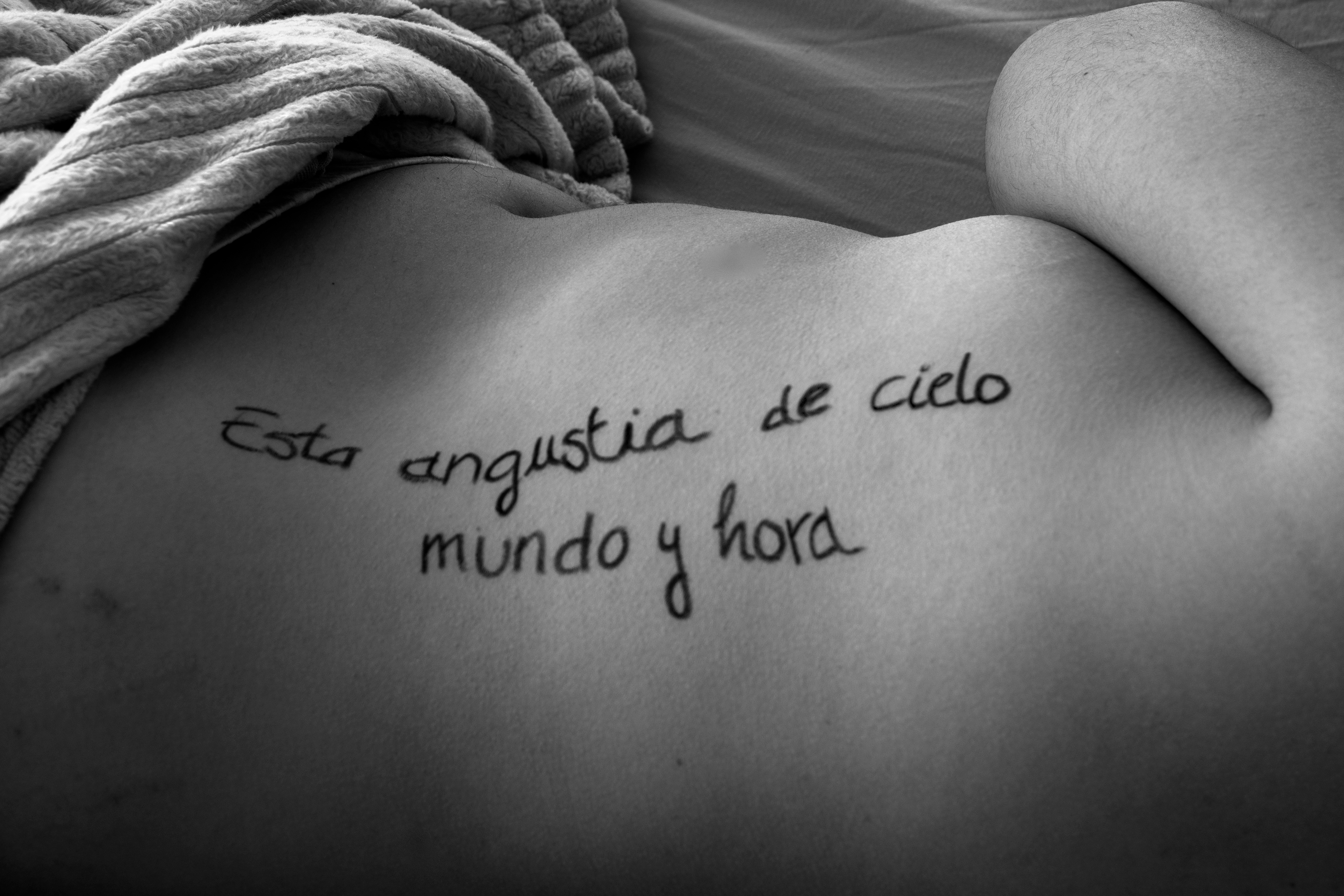
This anguish of heaven world and hour

Sweet and distant muffled voice

The ship is at sea and the horse is on the mountain

Through the sky goes the moon, with the child by her hand

My opressed heart feels
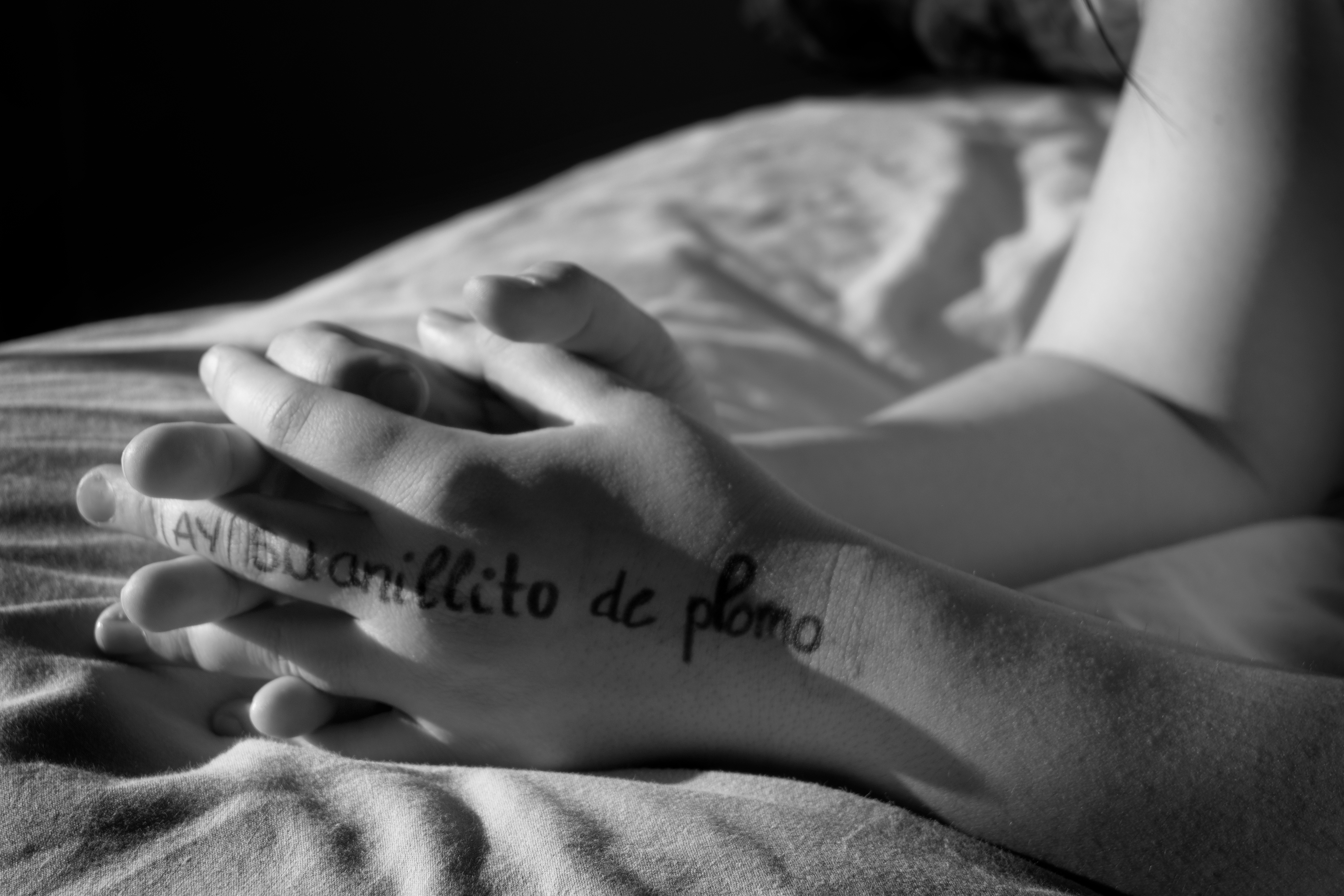
AY! Their little lead ring

Why do you search for lumber?
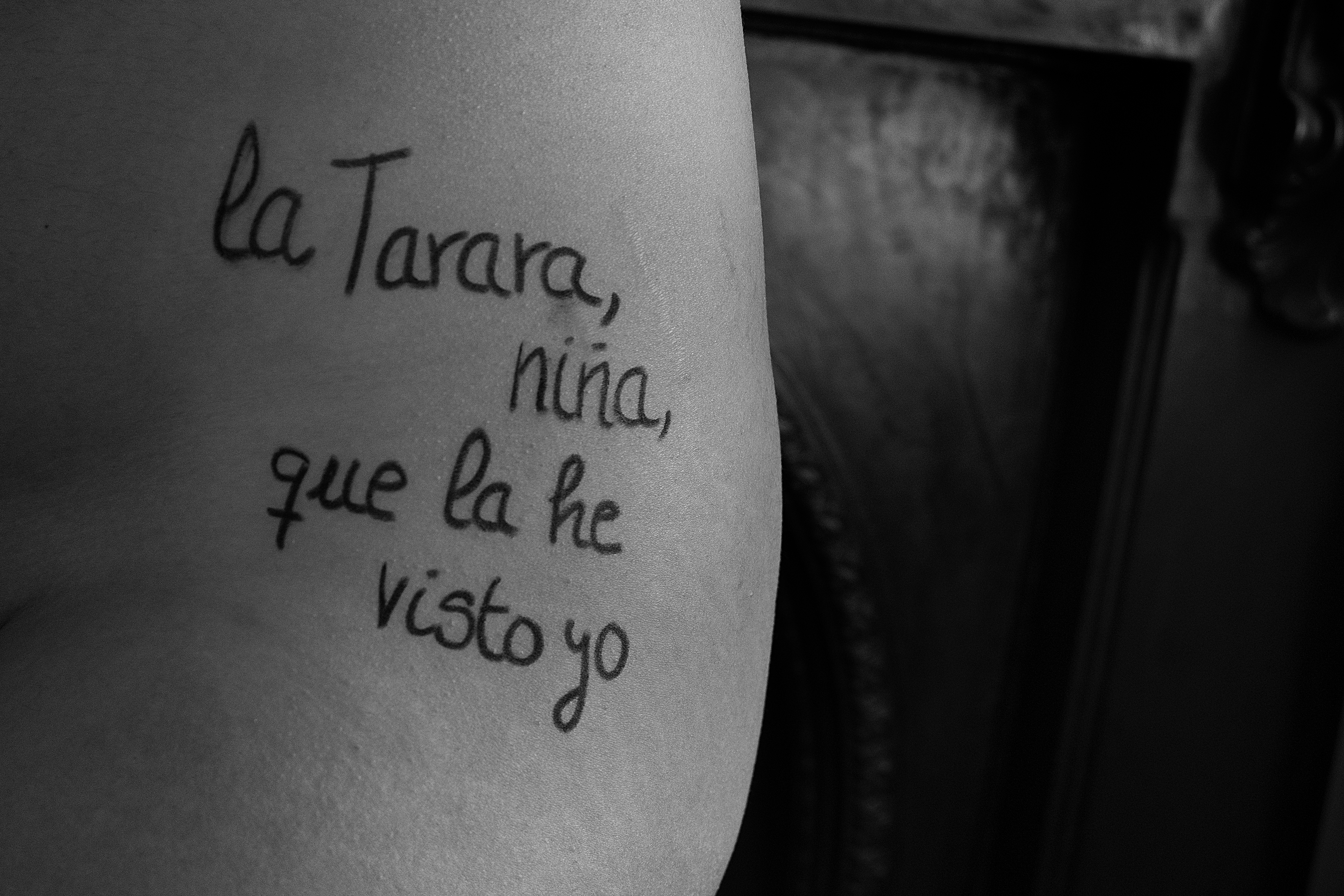
The Tarara, girl, I have seen her

Care lives in the warmth of distance
1- Green, how I love you green.
As mentioned before, this is the image that titles the project. It loosely translates into “Green, how I love you green” though its meaning can’t be fully conveyed since the verbal tense used does not exist in English. The verse evokes a sense of nostalgia and unrequited love. The colour green holds a deep symbolism. While it is popularly considered the colour of hope, it is also the colour of rotting flesh. This dichotomy is very present within Lorca’s work, it is usually used when trying to convey extreme desperation. In the poem, the green of nature, leaves and branches are contrasted with the girl who is described as having green flesh, green hair and eyes of cold silver, who can’t return the gaze that the world is giving her. I can’t help but feel the personal connection with this poem in particular. The way the hope of youth is contrasted with the pain the girl is suffering, and I can deeply relate to.
2 - In vain I wait for your written word.
This is one of my favourite poems. Translated, the first strophe goes:
“Love of my entails, living death
In vain I wait for your written word
And I think, as a flower that withers
That if I live without me I want to lose you.”
The last verse signifies that he is really fed up. He is losing his mind over this boy, but he is also so tired of being played with - “If I live without me I want to lose you” - he is willing to give up his love for some peace of mind.
For the audience, it is like getting in the middle of an old couple’s dispute, with the main quarrel being an older version of “you left me on read”.
3 - Upon seeing her has risen, The Wind, that never sleeps.
This poem talks about an attempted rape. A young girl is walking home, and a man starts following her. She manages to escape him by running to a nearby house. Because of its themes, I chose to place the text in my lower abdomen, where the uterus would be. We played with the composition and my desk lamp behind the camera, making its shadow project on the skin like a phallic presence looming over the poor girl.
4 - This anguish of heaven, world and hour.
In Spanish, heaven and sky have the same word, “cielo”. Which has connotations of both ecstatic pleasure (heaven) and unavoidable pressure (sky).
The “anguish of hour”. After moving so much, I hear a constant tick-tock in my head, telling me to keep moving, to chase the next high. So much so that the pressure becomes paralysing, and all I need is to do nothing but lie in bed; unable to escape the anguish, as persistent as the sky above my head.
5 - Distant and sweet muffled voice.
Love’s voice is sweet and it waters the desert in Lorca’s heart. Still, it is confined to the wooden cabin where the phones were in 1935 and run by the village’s widow, who is listening to the whole thing. Thus, they have to muffle their conversation and their love for each other.
Muffled can also refer to the distant voice with which one is losing connection. Like I have with my family, my friends and my culture. With phone conversations that feel like not enough and too much at the same time. Constant fear of missing out on big things and not wanting to hear about them to quiet down the pain of not being there.
6 - The ship is at sea and the horse on the mountain.
The poem places two characters, one of which is a man (horse), while the other is dead (at sea), in two different settings, one at sea and the other on the mountain; and thus he builds a distance between them.
The lower back is notorious for being painful after a long time travelling, whether it is by horse, like in the poem or by plane, in my case. This pain extrapolates to the heart, which also becomes painful after a long time of travelling.
7 - Through the sky goes the moon with the child by her hand.
The verse holds the double meaning of taking the child where the moon is – the sky – and taking him to heaven. The bulk of this poem is a conversation between the moon, death, and the child.
This conversation feels familiar in the sense that I feel like I have lived it a thousand times over the past few months. Dangerous thoughts clouding my mind, while a stronger part of myself thought of the pain it would cause my family. In the end, my hand didn’t take any action that could take me to heaven, unlike the moon, so Ana and I placed the text down my arm towards the hand as a reminder that every day I am alive is an active choice I am making, because I always find a reason not to let that hand act.
8 - My oppressed heart feels next to daybreak, the pain of your loves and the dream of distance.
This verse feels especially powerful given the context in which I have lived the last six years of my life. At this moment, I feel nothing but the pain of love at a distance, as if my heart is being tightly pressed in a fist.
9 - Ay! Their little lead ring
This was the first of Lorca’s poems I ever learned. I was seven years old and found it in the corner of my Spanish textbook. I don´t know why, but I loved it the second I read it and spent half the class memorizing it while ignoring the teacher. Finding that poem is one of my most cherished childhood dreams, most of which seem to be slipping through my fingers, like the lizards with their little lead ring.
10 - ¿Why do you look for timber?
This poem is not a poem, it’s a children’s Romani song which over the years has made its way onto the general Spanish popular repertoire Lorca transcribed, adding his own strophe . A a young girl tells her mother she has gotten married to one of the muleteers without telling her mother. In a sarcastic voice, the daughter asks her mother:
“Why do you look for timber?
When from your face steams
Living coal
Living coal"
My mother is one of the most important people in my life. Despite our issues in understanding one another, she is still my lifeline and a person I actively enjoy spending time with. One of the genetic miracles I got from her is a mole we both have, on the same spot on the same side. To represent my relationship with my mother, I used this mole and the dot in the interrogation sign in the first verse.
11 - The Tarara, girl, I have seen her.
Tarara is an adjective used to call someone crazy, specially a crazy woman. And the worst thing she could do, is dancing:
“Ay! Crazy Tarara
Moves her hips
For the boys
By the olive trees”
The Tarara is a popular character that represents female freedom, unburdened by the social control that gossip creates. She is fun, she is crazy, and she is the moment. I want to be like her sometimes. For this reason, we placed this verse on the hip, so I could learn to be a bit tarara.
12 - Care lives in the warmth of presence
This sentence is the final boss of my depression. I have felt uncared for for a while. Not for any reason, I just haven’t had a constant presence in my life in years. I have a lot of people I love and who love me, but I can’t feel them through the distance in time and space.
My lack of presence creates a distance between me and the people I love, but at the same time, cutting that distance with some will inevitably create distance with others. I care too much about these people to let them go. Which puts me in an endless paradox.